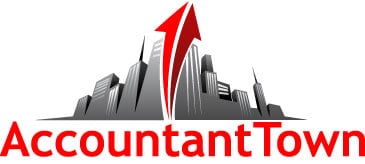What is a Chartered Financial Analyst (CFA)?
Chartered Financial Analyst (CFA) refers to a certification awarded by CFA Institute after passing the Chartered Financial Analyst (CFA) test. To end up being a CFA, one must pass three tests. An individual who strives to end up being a CFA needs to hold a four-year degree from a certified organization of higher knowledge with a financial concentration. There are likewise some other requirements, such as a high school diploma or GED. Being credentialed as a financial analyst requires that you successfully pass the test. Despite the reality that there is no particular requirement for this credential, companies appreciate having well credentialed candidates for their financial departments.
Gaining experience prior to passing the exam shows that a prospect has the ability to be a chartered financial analyst. Candidates can acquire experience by working as a junior market inspector or home mortgage lender. By working for a broker, they can gain similar experience. A person can take the test after gaining two years of experience as an inspector or in another pertinent position.
People who pass the first assessment can still choose to take a third or subsequent tests to improve their score. The third assessment requires a registration cost of $150. Licensed Expert Assessors (Qualified Public Accountants) or Registered Retirement Income Security Administrations (RRISs) administer the test. Individuals who pass the third examination can earn the classification of Chartered Financial Analyst.
Gaining a position as a Chartered Financial Analyst is the next step. It involves sending a resume and cover letter to a recruitment agency for accounting professionals or applying to a company of your choice. Candidates will then be spoken to concerning their experience, understanding, and capabilities in financial analysis. Potential candidates are likewise evaluated through a performance review procedure.
Three Elements of Chartered Financial Analyst
- Possession Valuation
- Portfolio Management
- Wealth Planning
CFAs typically needs a background in:
- Financing
- Accounting
- Economic
- Service
After finishing the program and being accepted by CFA Institute, those who have taken the CFA exam can hold the CFA certification and add it to their resumes. CFAs can work in senior and executive positions in investment management, risk management, and more.
CFA Program Benefits
Demonstrating Your Extensive Knowledge and Abilities
CFA Program students acquire a strong structure in innovative financial investment analysis and portfolio management.
Relevant for a Wide Range of Careers
CFA holders work in financial investment decision-making positions, normally as research experts or portfolio managers.
The value of a developing market
With the CFA credential, you demonstrate to companies that you have the understanding and dedication required to flourish in today’s complex and progressing financial investment market.
What is the advantage of being a Chartered Financial Analyst (CFA)?
A chartered financial analyst (CFA) is a worldwide acknowledged professional classification granted by the CFA Institute that determines and licenses the skills and stability of financial analysts.
To become a security analyst, candidates must pass three levels of exams covering the following:
- Accounting
- Economics
- Principles
- Money Management
- Security Analysis
The CFA credential is regarded as the gold standard in financial investment analysis and is one of the most distinguished designations in financing.
What are the benefits of becoming a Chartered Financial Analyst?
- CFAs have a high earning capacity
- Increased potential employment in your profession
- Having a professional credential
- Worldwide Acknowledgement
- Professional Experience
Keeping Your CFA Certification Up to Date After the Test
Specialists who have passed all three levels of the CFA charter examination need to continue their education in order to maintain their credential. All CFA Institute members need to devote themselves to ongoing study to advance their professions and the institute’s future.
Accounting made easy, for FREE!

Access the contact form and send us your feedback, questions, etc. We are always welcome to help someone out. You can also contact us if you wish to submit your writing, cartoons, jokes, etc. and we will consider posting them to share with the world! The Facebook and LinkedIn groups are also good areas to find people interested in accounting like yourself, don’t hesitate to join as everyone of all levels are welcome to become part of the community.
